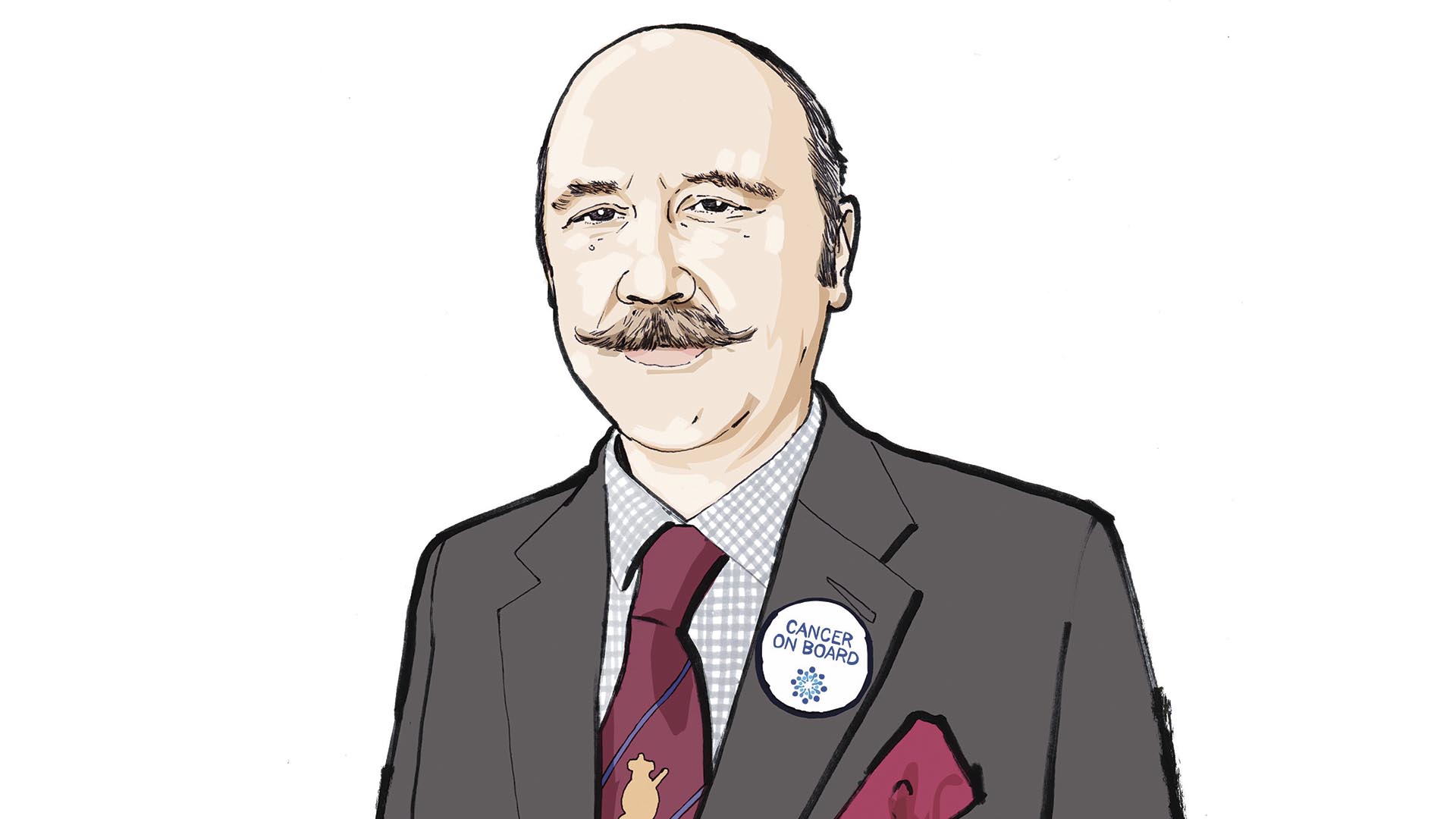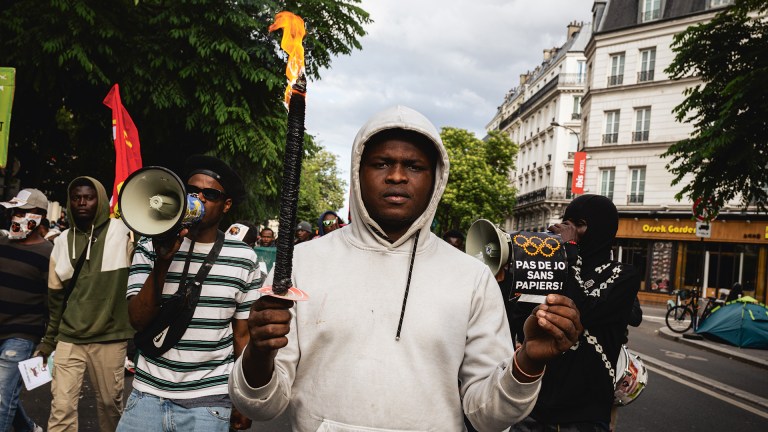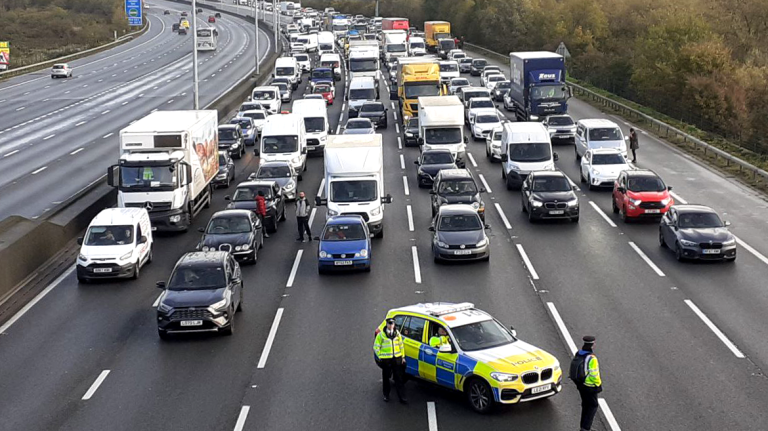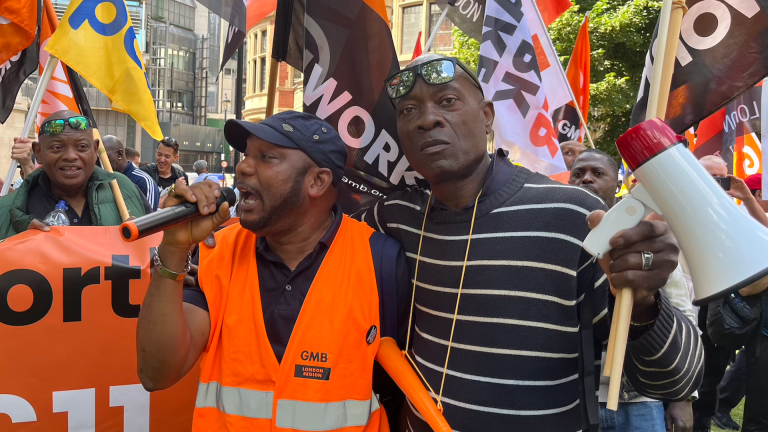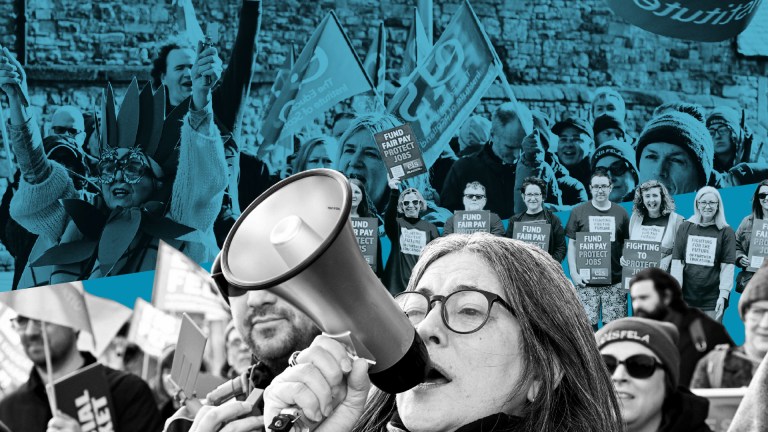It’s a joke that got out of hand,” laughs James McNaught, a House of Lords doorkeeper who has made a difference to nearly 10,000 lives across the UK through his charity Cancer On Board. The 48-year-old distributes ‘baby on board’-style badges to people with cancer to wear on public transport, often to and from treatment, encouraging others to watch out for them. McNaught achieved the impressive feat of helping people forge connections while on the Tube.
The founder left Gloucestershire for London 25 years ago. Once in the capital he found work as a landscape gardener, a security guard and an office administrator before landing his position at the House of Lords (“the most strangely Victorian job that still exists in the world,” he says).
In 2014, he saw a doctor about a sore throat he had been ignoring for months, expecting to be sent home with antibiotics. But the GP called a colleague in to take a look, and another, then referred McNaught to an oncologist. This Easter marks five years since his throat cancer diagnosis.
We joked that we could get some of those ‘baby on board’ badges and pretend to be pregnant,
Two months of chemotherapy plus six weeks of radiotherapy meant “a lot of trips on the Tube,” he says. “I got talking – croaking and whispering, really – to another guy in the waiting room when I was being treated, having to go to hospital every day.
“It was the hottest day of the year and we both had a terrible journey on the Tube. It was so busy and because you can’t talk you can’t actually say ‘Excuse me, can I sit down?’ But you’re always weak and exhausted.
“We joked that we could get some of those ‘baby on board’ badges and pretend to be pregnant so that maybe someone would let us sit down. It was silly, but the more I thought about it, the more I thought there could be something in it.”
